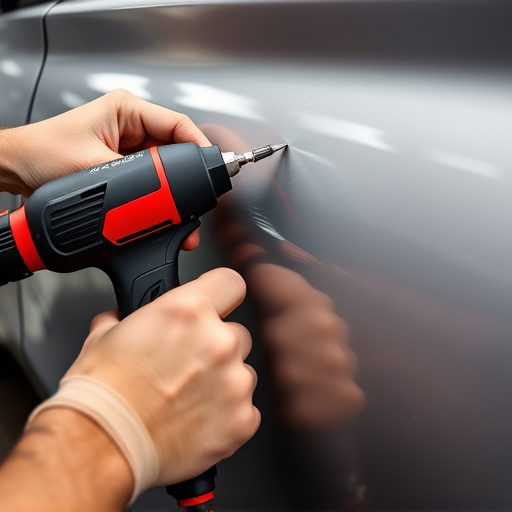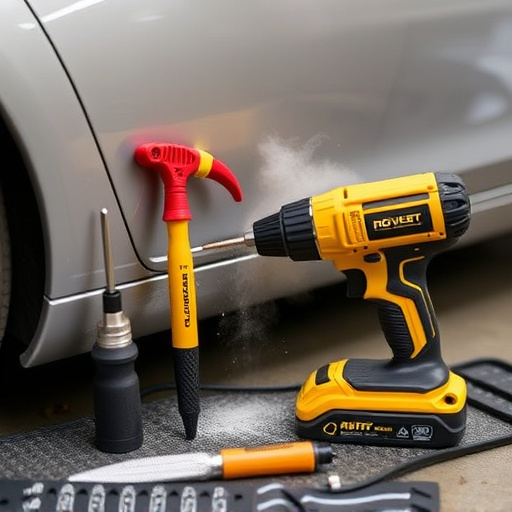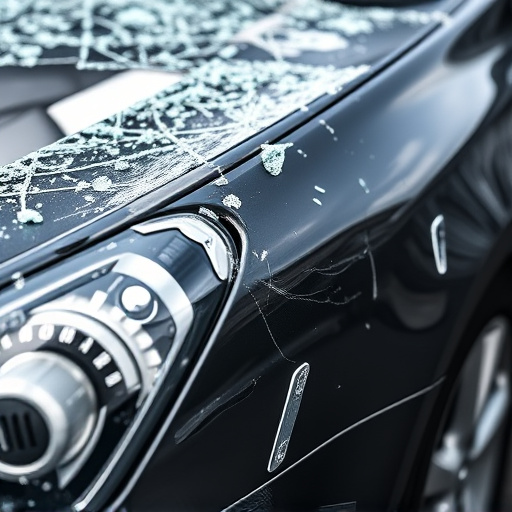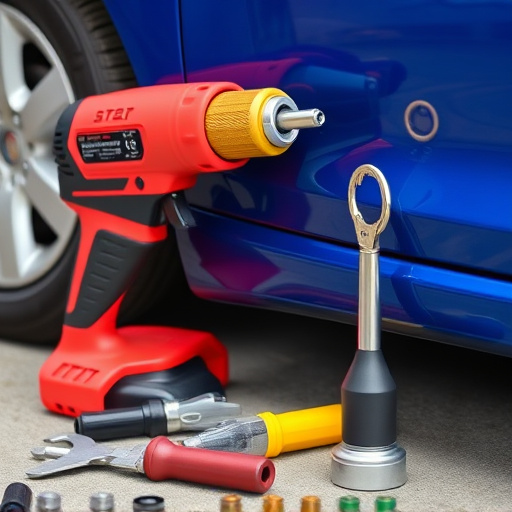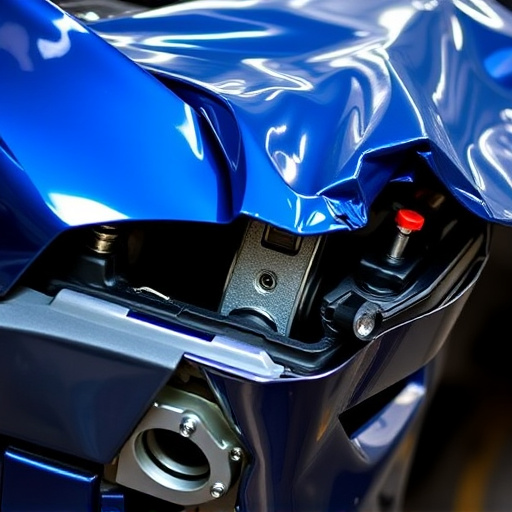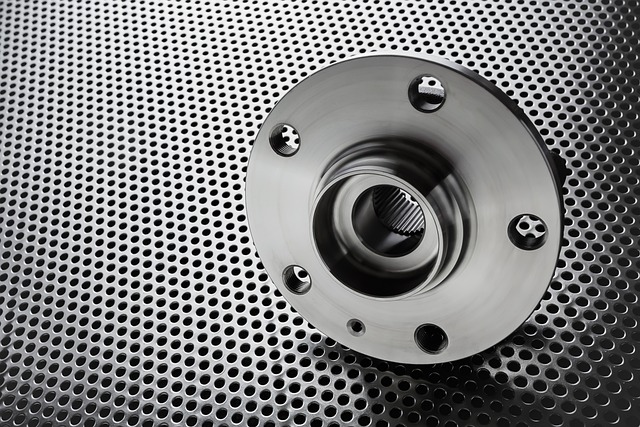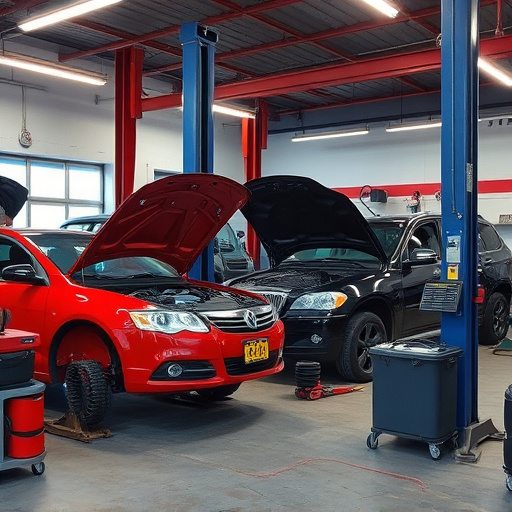Aluminum body components offer substantial advantages over steel in lightweight construction and corrosion resistance, making them ideal for modern vehicle design focused on fuel efficiency. Its natural protective oxide layer reduces maintenance costs, while its inherent lightness facilitates efficient car dent repair and restoration. Reduced vehicle weight boosts performance and fuel economy, with every gram saved critical in high-performance and electric cars. Brands like Mercedes Benz leverage aluminum's benefits, ensuring enhanced vehicle performance and longevity through proper tire services integrated with aluminum body components.
Aluminum body components versus steel body parts have sparked intense debate in the automotive industry. This article delves into the comparative advantages and disadvantages of these two materials, focusing on key aspects like lightweight and corrosion resistance, durability and crash performance, as well as cost, manufacturing, and sustainability. Understanding these factors is crucial for consumers and manufacturers alike when navigating today’s market trend towards lighter, more sustainable vehicles. By examining real-world examples and production dynamics, we gain insights into which material may be the better choice in terms of performance, affordability, and environmental impact.
- Lightweight and Corrosion Resistance: Advantages of Aluminum Body Components
- – Discussion on the inherent properties of aluminum that make it lighter than steel
- – How reduced weight impacts vehicle performance and fuel efficiency
Lightweight and Corrosion Resistance: Advantages of Aluminum Body Components

Aluminum body components offer significant advantages over steel in terms of lightweight construction and corrosion resistance. One of the primary benefits is the superior weight-to-strength ratio of aluminum, making it an ideal choice for modern vehicle design focused on fuel efficiency. By incorporating lighter aluminum parts into car bodywork services, automakers can reduce overall vehicle weight, leading to improved gas mileage and enhanced performance.
Moreover, aluminum exhibits a natural resistance to corrosion, even in challenging environments. Unlike steel, which requires frequent painting or coating to prevent rust, aluminum’s protective oxide layer shields it from moisture and harmful elements. This inherent trait not only contributes to the longevity of auto bodywork but also reduces maintenance costs associated with repairs related to corrosion damage, making aluminum an attractive option for premium car brands like Mercedes Benz repair specialists.
– Discussion on the inherent properties of aluminum that make it lighter than steel

Aluminum has distinct properties that make it a superior choice for aluminum body components compared to steel. One of its key advantages is its inherent lightness. Aluminum is significantly lighter than steel, offering a weight reduction that can substantially enhance fuel efficiency in vehicles. This property is especially beneficial for modern automotive designs aiming for better performance and lower emissions.
The lightweight nature of aluminum facilitates easier manipulation during car dent repair and car body restoration, making these processes more efficient. In the event of damage, aluminum body components are less prone to deforming, which simplifies the repair process. Moreover, aluminum’s resistance to corrosion further adds to its appeal in vehicle manufacturing and vehicle repair services, ensuring lasting performance and a reduced need for frequent maintenance.
– How reduced weight impacts vehicle performance and fuel efficiency

Reduced weight in vehicles is a significant factor in enhancing performance and improving fuel efficiency. Aluminum body components, known for their superior lightness and strength, offer a distinct advantage over steel body parts. This lightweight material allows engineers to create more agile and responsive cars, as the lower mass results in quicker acceleration and improved handling. When a vehicle’s overall weight is decreased, it requires less energy to achieve motion, leading to enhanced fuel economy.
In the automotive industry, this is particularly evident in modern high-performance vehicles and electric cars, where every gram saved contributes to better range and overall driving experience. For instance, luxury brands like Mercedes Benz, known for their meticulous craftsmanship, often utilize aluminum body components in repair and restoration processes, ensuring both lightweight construction and robust structural integrity. This attention to material science is not only essential for performance but also plays a vital role in the longevity of vehicles, especially when coupled with regular tire services to maintain optimal grip and fuel efficiency.
Aluminum body components offer a compelling alternative to traditional steel parts, especially in today’s automotive industry focused on lightweight materials. The inherent properties of aluminum, such as its low density and excellent corrosion resistance, contribute to significant weight savings. This not only enhances vehicle performance and fuel efficiency but also paves the way for more sustainable and environmentally friendly transportation solutions. As the demand for efficient and durable vehicles grows, aluminum body components are poised to play a pivotal role in shaping the future of automotive design.
